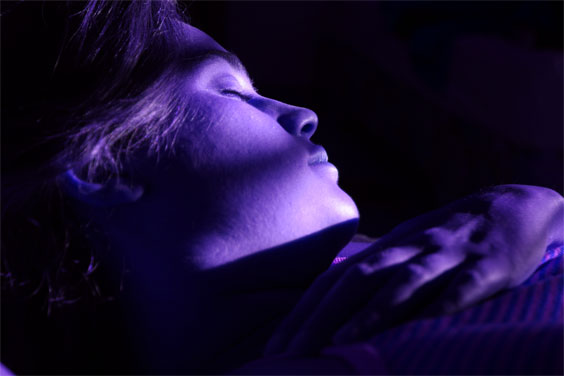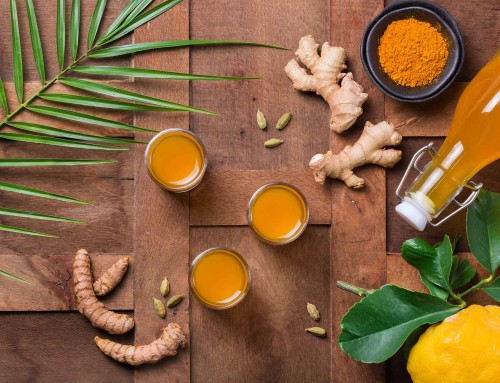12 Ways to Avoid Night-Time Worry

Do you find yourself tossing and turning at night, thoughts and worries from the day running through your mind like a movie reel?
Worry and trouble falling asleep tend to go hand in hand, as both have their roots in Vata dosha. Vata governs movement in the mind and body. It controls your blood flow, your elimination, the rise and fall of your breath, and the movement of your thoughts and emotions. If Vata has fallen out of balance, which is easy in Vata season (late fall and winter), you might notice an increase in anxious feelings and difficulty sleeping.
Fortunately, with a few simple diet and lifestyle changes, you can improve the quality of your sleep. Rather than treating symptoms, Ayurveda offers a holistic approach to address the root cause of worry and trouble falling asleep. Try a few of these tips for a better night’s sleep.
 1. Eat Calming Foods
1. Eat Calming Foods
Vata dosha is dry, and cold; to counter its influence, favour warm, cooked, substantial foods like hearty soups and stews, rice dishes, winter squash, and light dairy products. Cut back on light, dry foods like crackers, raw veggies, big salads and dried fruits (soaked is OK). Our guide to Doshas lists dietary recommendations for Vata. Have you ever considered sautéing your lettuce? It is a common practice in Asia. So, if you must have your salad… try sautéing it first!
 2. Eat Dinner Early
2. Eat Dinner Early
Prepare and eat a light, easy-to-digest dinner at least three hours before bedtime, so your body can digest before you hit the hay. At night, your body’s rest and repair mechanisms kick in, but it’s harder for them to do their job if they’re weighed down with excess food. The result is that sleep is not as restful and digestion is inefficient, which can lead to long-term imbalances. Favouring a light dinner—such as steamed vegetables and dhal, or soup—is ideal. If possible, avoid heavy meats, aged cheeses and fried foods.
 3. Avoid Stimulants
3. Avoid Stimulants
Caffeine, chocolate, and alcohol can all interfere with sleep, especially if you consume them in the evening.
Herbal Help: Try a soothing cup of Organic Vata Tea or Good Night Tea. Take Peace of Mind (MA1401) tablets two to three hours before bed or Blissful Sleep Vata Pitta (MA1684) tablets 30 minutes before bed. Give a boiled cup of milk a try; steeping Organic Vata Tea in milk is a wonderful treat.

 4. Unplug and Unwind
4. Unplug and Unwind
This one can be a challenge! But try to resist the pull of your TV, smartphone, tablet, and computer after 8:30 p.m. to give your body a chance to tune into its circadian rhythms. Listen to soothing music (Gandharva Veda is particularly relaxing), read uplifting books, or take a short evening stroll to help you unwind. Let the sun set in your home. Turn off the lights, relax and let the light naturally go out. Be all ready for bed before doing this; you’ll be surprised at the results!
 5. Try Aromatherapy
5. Try Aromatherapy
We have several lovely blends of aroma oils suitable for use before bedtime such as Vata Balance, Sweet Sleep, Peace at Night and Peace of Mind with soothing and balancing oils including lavender, jasmine, holy basil, chamomile, rose, clary sage, marjoram, fennel and neroli. Let your nose guide you each evening and choose the one that smells the best.
 6. Get to Bed Early
6. Get to Bed Early
Try to go to sleep during Kapha time, when your body naturally starts to wind down. Kapha time falls from 6-10 p.m., so you’ll ideally want to head to bed before, or near, 10 p.m. This can be a challenging habit to instil if you’re a self-professed night owl, but research shows that an early bedtime boosts students’ performance in school. Try an evening walk to relax and tune into nature’s rhythms.
 7. Wake Up Early, too
7. Wake Up Early, too
It turns out there might be something to the old “early to bed, early to rise” adage. Train yourself to wake up early, before Kapha time kicks in again (6:00 a.m.), and you’ll not only feel fresh and active during the day, you’ll also gradually fall asleep earlier at night. A walk in the morning sunlight is considered by Ayurveda to be one of the healthiest activities.

 8. Make Abhyanga a Priority
8. Make Abhyanga a Priority
To relieve tensions in your mind and body, try to give yourself a warm sesame oil massage (abhyanga) each morning, followed by a warm shower. Before bed, give yourself a mini-massage—just your head and feet. A warm bath at bedtime can also help you drift off to sleep. If a full bath seems like too much, try soaking your feet in warm water and then applying oil. Or consider purchasing a foot tub for a regular soak.
 9. Get Moving
9. Get Moving
Getting enough exercise each day helps to reduce stress levels, and it also promotes deeper sleep. Try to avoid overly strenuous exercise at night, as it can be too stimulating. Short walks and gentle stretches are a good way to sneak in some light movement before bed.
 10. Address Your Emotions
10. Address Your Emotions
If stressful situations and relationships are keeping you up at night, it’s important to address them head on. Talk to friends and counsellors or journal out your emotions. For a little extra help, our Blissful Sleep (MA1778) formula contains herbs like Indian valerian and ashwagandha, which have a calming, balancing effect on the mind, body, and emotions to help you fall asleep naturally.
 11. Tackle Stress
11. Tackle Stress
To prevent stress accumulating during the day positive action is needed. Peace of Mind (MA1401) tablets contain several plants that facilitate mental function including the great adaptogenic herb aswagandha. As a result this wonderful formula both calms the mind and enhances alertness at the same time helping one get the job done without feeling exhausted by day end.
 12. Take a Time Out
12. Take a Time Out
Going for a restorative nature walk, hitting a yoga class, meditating, or even just taking a few moments to pause and breathe are all great ways to step back from life’s hectic pace. Transcendental Meditation® has been shown to reduce cortisol and increase mental alertness; a recent meta-analysis study found it was the most effective technique for reducing stress.
By incorporating just a few of these recommendations, you should be able to enjoy a more carefree Vata season— and above all, a better night’s sleep!
By vpk® by Maharishi AyurVeda on February 2, 2018
DISCLAIMER: The information in this document is presented for the sole purpose of imparting education on Maharishi AyurVeda and neither the information nor the products are intended to diagnose, treat, mitigate, cure or prevent any disease. If you have a medical condition, or are pregnant or lactating, please consult a health professional and it is recommended that you speak with your physician before making significant changes to your diet or routine.





